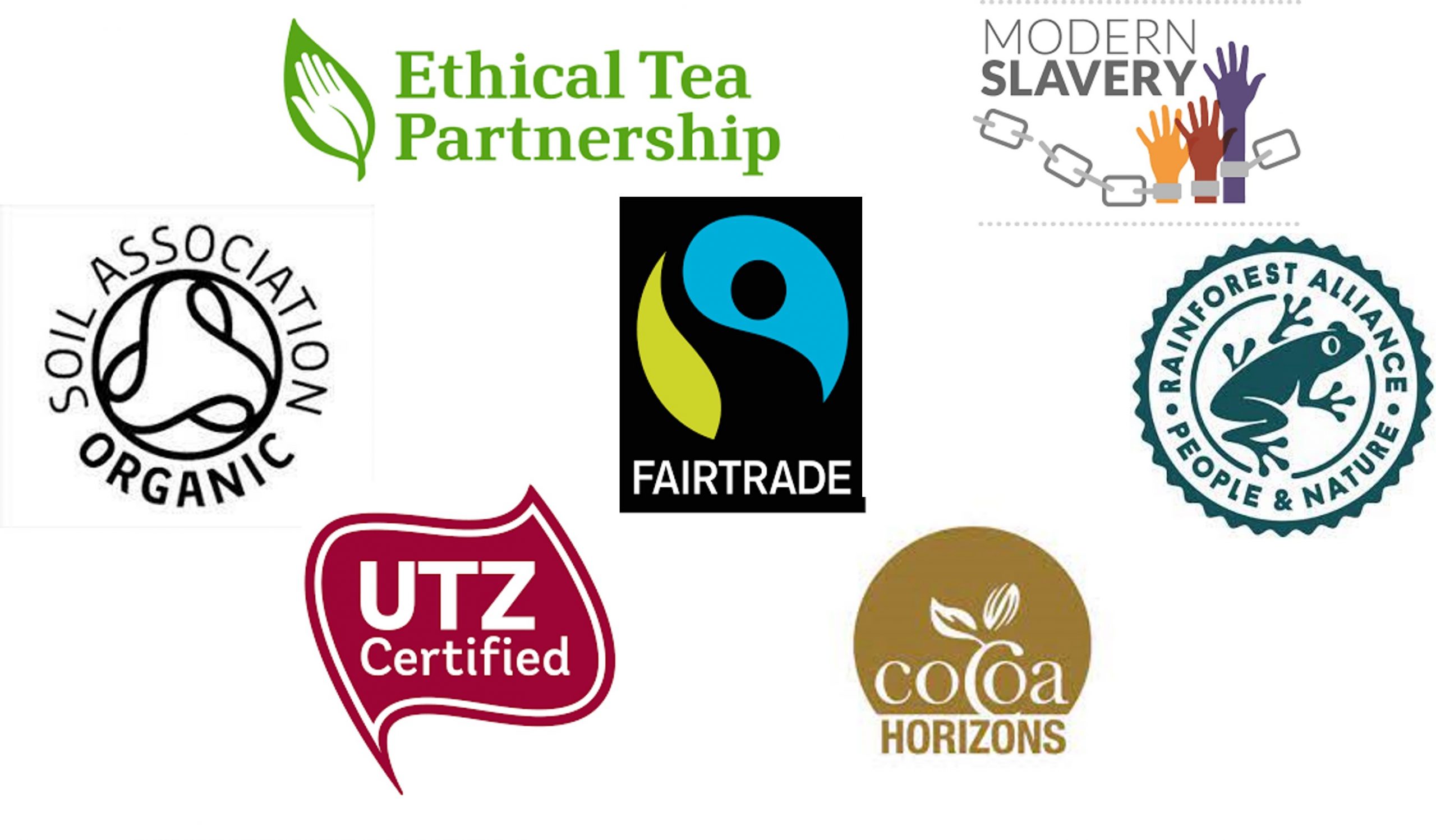It’s important to buy ethically. Of course, no one wants to support slavery or exploitation. But how do we know if the things we buy every day are ethically produced?
The International Labour Organisation of the United Nations reports 16 million people are exploited in the private sector which includes agriculture. Agriculture is a “high risk” sector for exploitation and abuse due to the nature of the work involved.
We might look for a label like Fairtrade or Rainforest Alliance. But what if the label is Sainsbury’s ‘Fairly Traded’ label? Or what if there is no label? Or what if there is a label, but it’s not one we recognise?
It’s a minefield!
We can research a bit. But we can’t research all of the certification agencies and the ethics of a supermarket which has opted out. It might be ok to look carefully at one product, but what about when you’re filling a trolley for a weekly shop?
When I buy a Fairtrade banana, I know it has not been grown by exploiting people. But, when I buy a non-Fairtrade banana, am I supporting slave labour or child exploitation? Or does it mean the banana was grown in a non-Fairtrade country? How do I tell?
We’ve done some research ourselves recently. This was prompted by hearing about the new ‘Bovey Tracey Fairtrade Register’. The Fairtrade Register is definitely a laudable initiative to point consumers towards ethical products.
It’s easy to think that a non-Fairtrade product must be ‘Unfair Trade’. But, did you know Fairtrade only covers 25 countries? I didn’t (https://www.fairtrade.org.uk/what-is-fairtrade/where-fairtrade-works/). That means if that banana comes from Ecuador, it’s not going to be Fairtrade. But that doesn’t mean producing it has exploited people. There are other certifying agencies with at least equally good motives and credentials for protecting the labour force.
So where does that leave us?
The new Bovey Tracey Fairtrade Register asks for five Fairtrade products a shop sells. We decided not to list five of our coffees. Instead, we thought we would add some colour. The Register will be great for sign-posting to Fairtrade products in the town. But what about the rest of the weekly shop?
At Bovey Larder we have worked hard to source the goods we sell and to work with suppliers who fit with our ethos. Each of our suppliers does their own due diligence on their providers and countries of origin. Their credentials are extremely important to us when we make buying decisions.
I think the only options for customers are to trust a retailer who you know will have done the research and shares your ethical standards, or to do your own research.
Here is some colour on the products we sell that come from tropical climates.
Ground and whole bean coffees from ‘No1 Coffee’
Fairtrade certified, Organic, Rainforest Alliance certified, Soil Association certified
Single source coffees:
- Colombian (Organic & Fairtrade)
- Peruvian (Organic & Fairtrade)
- El Salvador (Rainforest Alliance)
Loose Leaf teas from ‘Tealicious’
- Teas sourced only from estates signed up to one or both of ‘Ethical Tea Partnership’ and ‘Rainforest Alliance’. Except one tea, from China where neither NGO has significant footprint.
Dried larder goods from ‘Queenswood’
https://queenswoodfoods.co.uk/slavery-human-trafficking-statement/
“The organisation is absolutely committed to preventing modern slavery and human trafficking in its corporate activities, and to ensuring that its supply chains are free from modern slavery and human trafficking.”
“…risk assesses all suppliers before approval of supply and continue to monitor each supplier following their approval.”
Loose, Organic Herbs and Spices from ‘Organic Herb Trading’
“We welcome the requirements set out in the Modern Slavery Act, which place a responsibility on businesses to assess the risk of slavery occurring in their supply chains.”
“Wherever possible, we buy directly from the company producing the plant ingredient. A direct relationship means we are able to better understand the factors which may lead to forced labour, and can help ensure it does not occur.”
Chocolate from ‘Montezuma’s’
https://www.montezumas.co.uk/business-done-properly
Ethical cocoa sourcing has always been a core philosophy of Montezuma’s.
“We … know that there are major problems of poverty, slavery and child labour in some cocoa-producing countries and that we have a massive responsibility to ensure we don’t turn a blind eye.”
“We work with a number of suppliers to ensure that all our ethically sourced chocolate meets stringent ethical criteria and certifications which include Rainforest Alliance, UTZ, Soil Association and Cocoa Horizons. Our priority is to buy the best tasting responsibly sourced cocoa to make our chocolate and this is why we do not narrow ourselves to an individual cocoa growing region or certification. As long as every chocolate purchase we make plays a part in improving the industry and the lives of farmers.”
“We are committed to the long-term sustainability of cocoa plantations and the wider industry. It’s vital that farmers earn enough money to survive.”
